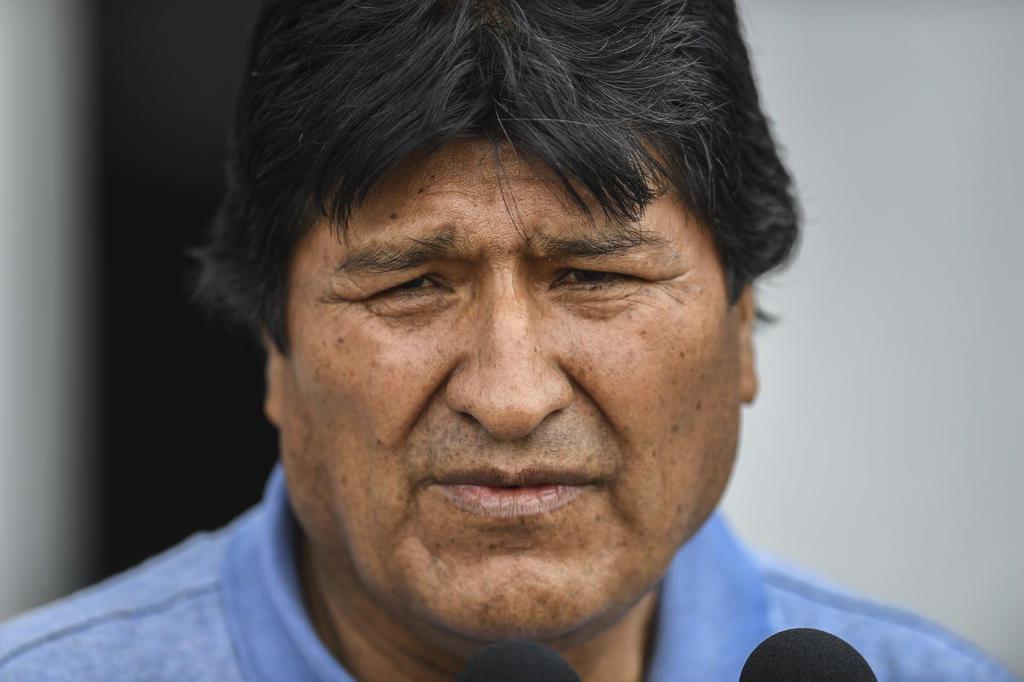RIO DE JANEIRO, BRAZIL – The former leftist president of Bolivia, Evo Morales (2006-2019), took advantage of his visit to Lima to strengthen ties with the president-elect of Peru, Pedro Castillo, and the far-left Peru Libre party, before attending the inauguration of the new Peruvian president on Wednesday.
Morales met on Tuesday night with Castillo and the day before he had dinner in a Lima restaurant with Vladimir Cerron, the founder and leader of the Marxist Peru Libre party, who could not be a candidate in the elections due to a corruption conviction for his term as regional governor of Junin.
Since Castillo became the most voted candidate in the first electoral round, the former Bolivian president expressed on several occasions his support for the Peruvian through social networks, where he posted a photo of the two taken in 2018 in La Paz during a Latin American meeting of teachers.
Read also: Check out our coverage on Bolivia
“We remember our struggles, he as a teacher and I as a peasant leader. We are proud of his election as president of Peru. We are people and brothers, and we accompany each other,” Morales said on his social networks.
Castillo, a rural school teacher in the Cajamarca region of the northern Peruvian Andes, has, like Morales, his origins in a peasant family and recently established himself as a teachers’ union leader by leading a nationwide strike in 2017 that paralyzed public education for three months.

“BINATIONAL AGENDA” OUTLINED.
With Castillo as president and Peru Libre as the governing party, Morales anticipated a good affinity with his successor in Bolivia, Luis Arce, and the Movement Towards Socialism (MAS) party led by the former president.
Morales considered that the scenario exists so that, under the leadership of the two presidents, MAS and Perú Libre may converge in a “binational agenda”.
These common interests would revolve around road integration, the bioceanic railway corridor, the industrialization of the lithium deposits that both countries have, and the construction of a “mega-port” in Ilo, a city in southern Peru, which would facilitate Bolivia’s access to the Pacific Ocean.
These are not the only similarities, since Castillo won the elections with a reformist program that includes the nationalization of natural resources and a new Constitution, two of the milestones that marked Morales’ presidential mandate.
“With the new president of Peru, we agree on the political obligation of the social movements to take care of and defend Lucho Arce and Pedro Castillo from destabilizing actions,” concluded Morales.
MEETINGS WITH COCA GROWERS AND TEACHERS
Hours before meeting with Castillo, Morales also met with Peruvian coca leaf producers and union representatives of the Peruvian teachers’ union.
“We agreed to work for unity. Latin America is not the backyard of the United States, and this generation has the answer: Plurinational America is of the peoples for the peoples,” Morales said after he meets with coca growers, coordinated by Free Peru congressman Guillermo Bermejo.
In addition to Morales, Arce will also be present at Castillo’s investiture, along with other presidents of South American countries such as Argentina’s Alberto Fernández, Chile’s Sebastián Piñera, Colombia’s Iván Duque and Ecuador’s Guillermo Lasso, as well as the King of Spain, Felipe VI.

